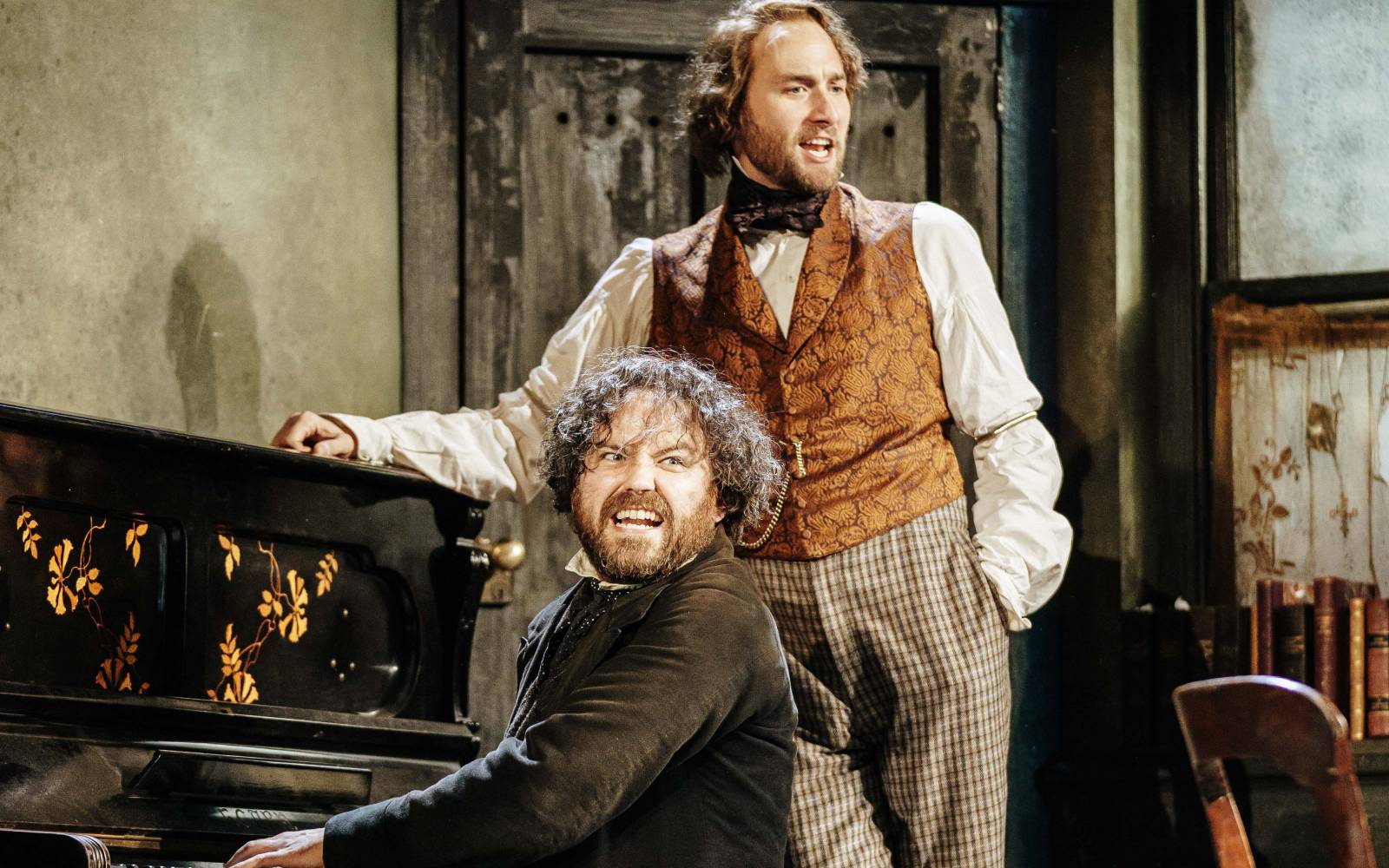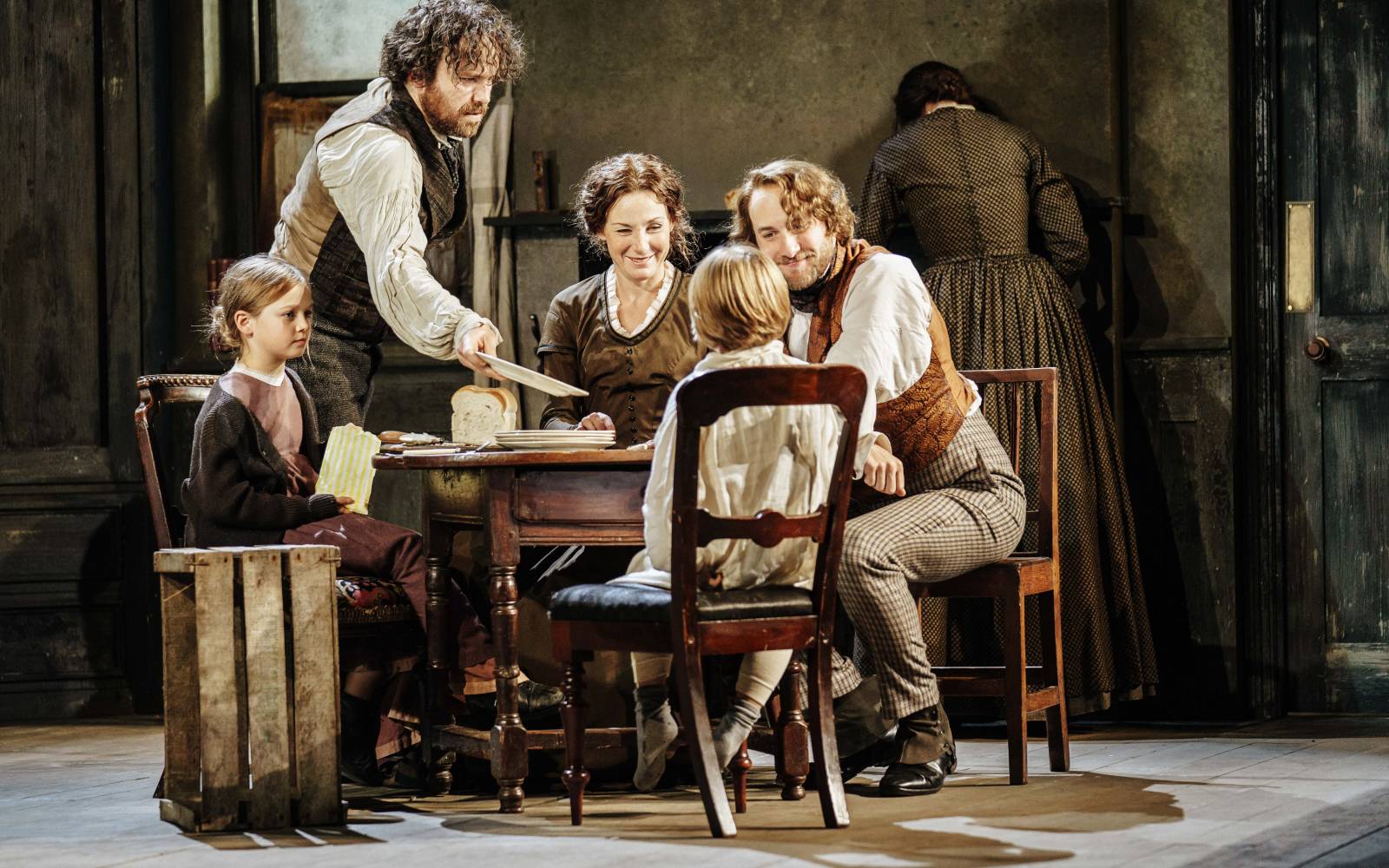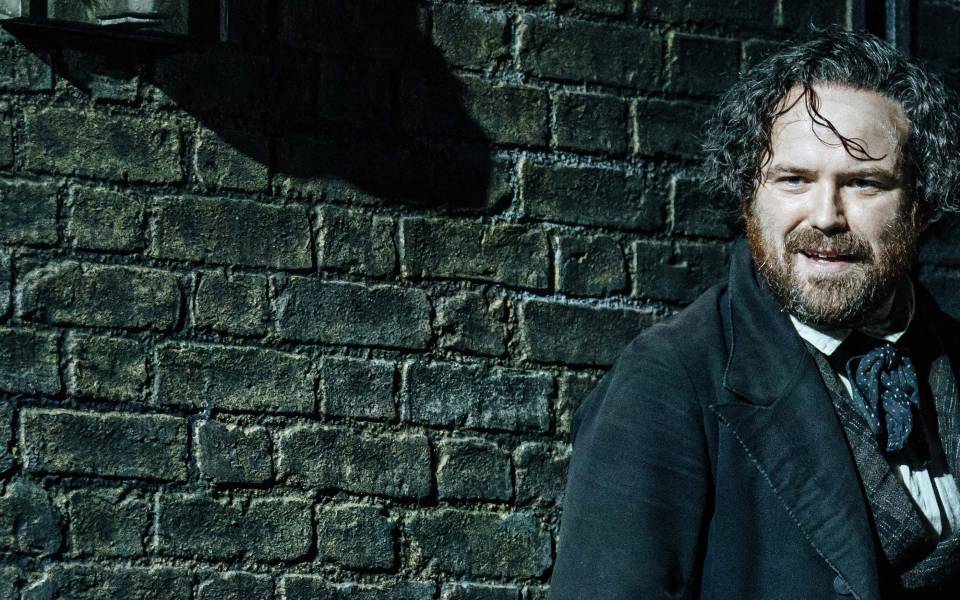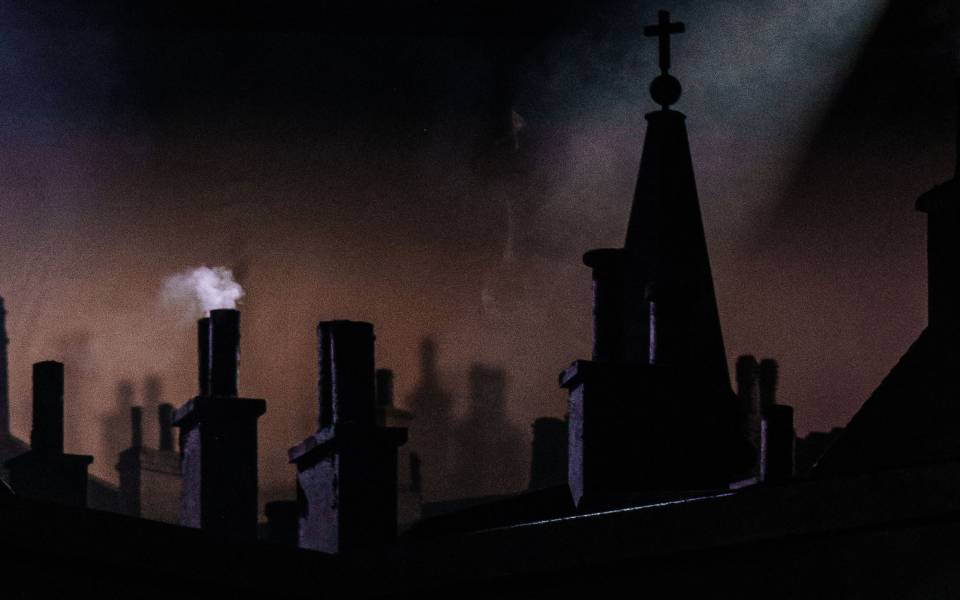
The Mill-Owning Marxist
Tristram Hunt introduces the revolutionary friendship between Engels and Marx
“Marx was a genius; we others were at best talented.” The secret to the friendship between Karl Marx and Friedrich Engels – perhaps the greatest intellectual companionship in Western political thought – lay in Engels’s acceptance of Marx’s philosophical prowess. He regarded Karl Marx as a world-historic figure and, as such, he was more than willing to play ‘second fiddle’ to “so splendid a first fiddle as Marx”.
So Friedrich Engels chose to sacrifice much of what gave him meaning and pleasure in life to support the work of Marx. For two long decades, working as a mill-owner in Manchester, he played the role of a cotton-lord capitalist, to fund the intellectual origins of Marxism. Yet we should never think of Engels just as Marx’s money-man. In fact, not only did his time in the Manchester textile trade provide first-hand data for the writing of Das Kapital, he was also responsible for some of Marxism’s more interesting applications. More than that, it was Engels’s codification of Marx’s philosophy – particularly after Karl’s death – which (for good or ill) gave Marxism the political energy with which it entered the 20th century.
Both were middle-class children of 1820s Rhineland, who wrestled with the twin inheritance of Romanticism and Enlightenment, and edged towards socialism through the works of Hegel. But, in contrast to Marx, Engels’s insights came from lived experience. Despatched by his father to Manchester to work in the family mill – primarily to get him away from all the radical students he was socialising with in Berlin – Engels became the great chronicler of the inhumanity of industrial capitalism.
His insight was to apply the Hegelian notion of alienation – previously discussed in terms of religious sentiments – to the realm of political economy. For it wasn’t just Christianity that involved a denial of man’s nature: competitive capitalism involved an equally disfiguring process of alienation – “private property has turned man into a commodity whose production and destruction also depend solely on demand…”.
With notebook in hand, he explored the social consequences of that political economy through the streets, rookeries and cellars of 1840s ‘Cottonopolis’. “I forsook the company and the dinner-parties, the port-wine and champagne of the middle classes, and devoted my leisure-hours almost exclusively to intercourse with plain working men,” he explained. He visited Owenite Halls of Science, spent time with Chartists, watched a brickmakers’ riot, and with his Irish lover Mary Burns sought out the human detritus of capitalist society. “The race that lives in these ruinous cottages, behind broken windows, mended with oilskin, sprung doors, and rotten door-posts, or in dark, wet cellars, in measureless filth and stench, in this atmosphere penned in as if with a purpose, this race must really have reached the lowest stage of humanity.”
Engels was relentless in charting the ‘social war’ waged by the middle class on the operatives of the industrial city. Workplaces resembled crime scenes. “Women made unfit for childbearing, children deformed, men enfeebled, limbs crushed, whole generations wrecked, afflicted with disease and infirmity, purely to fill the purses of the bourgeoisie.”
He was inflamed by the Manchester middle classes. “I once went into Manchester with a bourgeois, and spoke to him of … the frightful condition of the working people’s quarters, and asserted that I had never seen so ill-built a city. The man listened quietly to the end, and said at the corner where we parted: ‘And yet there is a great deal of money made here; good morning, sir.’”

The result was his masterpiece, The Condition of the Working Class in England (1845). “What power, what incisiveness and what passion drove you to work in those days,” wrote Marx on re-reading it 20 years later. “Those were the days when you made the reader feel that your theories would become hard facts if not tomorrow then at any rate on the day after.”
On his return to the Rhineland, from Manchester, Engels met Marx in Paris. From the summer of 1844, he later recalled, “our complete agreement in all theoretical fields became evident.” This was the moment when, after 10 days of debate and discussion, Engels came to accept Marx’s intellectual primacy and their friendship began. “Money, knowledge – everything was in common between them … Engels extended his friendship to the whole of Marx’s family: Marx’s daughters were as children to him, they called him their second father,” was how Marx’s son-in-law Paul Lafargue described it.
The next four years saw Marx and Engels at their most collaborative as they shared lodgings in Paris and Brussels, returned to Manchester to read the works of Adam Smith and David Ricardo at Chetham’s Library, sought to develop their economic critique of capitalism into a coherent philosophy (principally through works such as The German Ideology), and find a political vehicle for their thinking through The Communist League. Out of this emerged their most celebrated polemic, The Communist Manifesto (1848).
But the Manifesto was better than the actualité. The 1848–49 European revolutions was the moment, in AJP Taylor’s phrase, when “Europe failed to turn”: a series of nationalist rebellions against fading monarchies failed to develop into the kind of class revolution which Marx and Engels were advocating. So the two Rhineland Radicals retreated to Britain to allow Marx the freedom to work on his masterpiece, Das Kapital – which meant Engels returning to the family business.
“The two of us form a partnership together,” Marx soothingly explained, “in which I spend my time on the theoretical and party side of the business,” while Engels’s job was to provide the financial support by busying himself at commerce.
What is so fascinating about Engels’s later years in Manchester (1850–70) is his double life: the first was as the revolutionary communist, meeting with Chartists, reporting to Marx on the state of global finance, and working on socialist tracts. The second was as an unimpeachable member of the Manchester bourgeoisie: he attended concerts by the Hallé orchestra; was a regular at the Manchester Royal Exchange, and was a stalwart of the city’s civil society – the Schiller Anstalt, the Brazenose Club, the Albert Club, the Subscription Library, and of course the Cheshire Hounds! Engels tried to justify his fox-hunting hobby on revolutionary grounds as “the best school of all” for warfare. But however he dressed it up, what clearly aroused Engels was the thrill of the chase: “On Saturday I went out fox-hunting – seven hours in the saddle. That sort of thing always keeps me in a state of devilish excitement for several days; it’s the greatest physical pleasure I know.”

His domestic life was far less aristocratic: its anchor was his long-time lover Mary Burns and her sister Lizzy (both of them illiterate Irish ex-millhands). For all his austere image as ‘The General’ (the nickname given to him by Marx’s daughters), Engels was in fact a far more Bohemian and raffish character than the increasingly bourgeois Marx. When Karl and Jenny’s daughter, Eleanor, wanted to flee the overbearing Marx household, she jumped on the train to Manchester for drinking games, country walks and free-flowing conversation. However, to retain his place within Manchester society, Engels felt compelled to hide his relationship with the earthy, Irish sisters from business colleagues and family alike. It was just another contradiction of being cotton-lord and communist. As he readily explained in a letter to Marx: “huckstering is too beastly … most beastly of all is the fact of being, not only a bourgeois, but actually a manufacturer, a bourgeois who actively takes sides against the proletariat.”
But it was all necessary to keep Karl going. “Dear Mr. Engels,” as Jenny Marx was apt to address him, was regularly allocating over half his annual income to the Marx family – totalling between £3,000 and £4,000 (£300,000 to £400,000 in today’s terms) over the twenty-year period he was employed.
However, Ermen & Engels yielded more than just a living allowance. It also provided the essential data for Marx’s analysis of capitalism. “I have now reached a point in my work on economics where I need some practical advice from you,” Marx wrote to Engels in January 1858. “It concerns the circulation of capital … If you could give me some information on this, then it will be very welcome …”. Over the next five years, the requests for real-life information kept coming as Engels’s years of grafting in the Manchester cotton trade helped to construct the empirical foundations of Das Kapital.
Its publication in 1867 seemed to vindicate, for Engels, his years of cotton toil. And, after his return to London’s Primrose Hill in 1870, he spent the ensuing quarter-century interpreting, protecting and publicising the works of Marx. In doing so, Engels developed the doctrine of socialist feminism (in his work The Origin of the Family, Private Property and the State); Marxist anti-imperialism; and, I would suggest, much of modern urban spatial theory. But his main contribution was to align Marx’s canon with his own Hegelian inheritance and the emerging vogue of Darwinism to create ‘dialectical materialism’ – the world-view of early 20th-century Marxism. As Gareth Stedman Jones has written, “The ‘Marxism’ of the 1880s, was not simply a picture of class struggle and the end of the bourgeois mode of production. In [his best-selling polemic] Anti-Dühring, Engels provided an all-encompassing vision of nature and existence.” And, as the leading Soviet Marxist scholar David Ryazanov noted, “All the young Marxists who entered the public arena in the early eighties were brought up on this book.”
Despite his remarkable global impact, Engels would always defer to the memory of Marx. “Without him the theory would not be by far what it is today. It therefore rightly bears his name.” But without Engels, ‘Marxism’ might well not have happened.
Tristram Hunt, October 2017
Tristram Hunt is the author of The Frock-Coated Communist: The Revolutionary Life of Friedrich Engels (Penguin Books).
This article was originally published in the production’s programme.
Photos by Manuel Harlan.
Further reading

The Second Time as Farce
Francis Wheen
It is one of Karl Marx’s most quoted lines: “Hegel remarks somewhere that all great world-historic facts and personages appear, so to speak, twice. He forgot to add: the first time as tragedy, the second time as farce.” As something of a world-historic…
More →
Soho in 1850
Rosemary Ashton
Two years after the failed 1848 revolutions in all the capital cities of Europe – all, that is, except London – Soho was the area in which the largest number of foreign political exiles were to be found. Here they lodged in cheap rooms…
More →